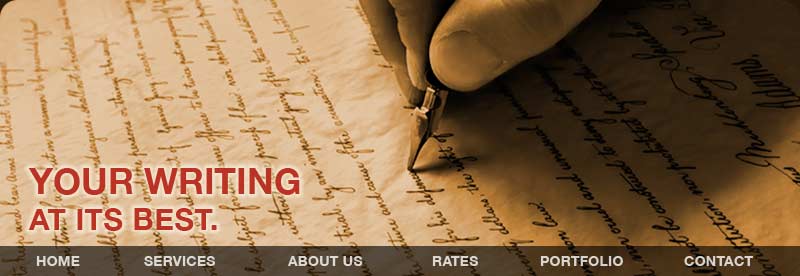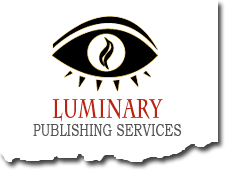Types of Editing
- Proofreading.
Proofreading is the most bare-bones form of editing. A proofreader looks for technical errors of the most basic kinds: spelling (including typographical errors), punctuation, grammar, and formatting. This is typically the last editorial task performed on a manuscript before publication. By the time proofreading occurs, the broader decisions regarding what to say and how to say it have already been made.
- Copyediting.
When most people think of editing, they are thinking of copyediting. Broader in scope than proofreading, copyediting is meant to improve the overall quality of the writing. In addition to correcting grammar and spelling, the copyeditor addresses stylistic concerns such as clarity, tone, and flow. Awkward sentence structure, misused words, unclear or passive language, inconsistency, redundancy, and other faults are corrected in this process. The copyeditor may also perform fact checking.
- Developmental, or Content Editing.
While copyediting focuses on the quality of the writing, content editing goes still further and addresses the quality of thought behind the writing. Would the manuscript work better if the material were presented in a different order? Should Chapter 8 be removed altogether? Has the author left an important point unexplained?
Project Types
Book & Magazine Editing
Not all book and magazine projects require the same editorial treatment. Different project types require attention to different sets of details. Having worked with book and magazine publishers both large and small, we are sensitive to these differences. We're qualified to edit many different types of work, including:
- News articles, feature stories, and recurring columns
- General non-fiction, such as business, self-help, travel, historical, or memoir
- Academic textbooks, with all of the attendant regulatory requirements
- Novel manuscripts (literary or genre fiction) and short stories
- Scientific or technical documents
Marketing Literature & Corporate Communications
![[sign with typo]](images/quality_sign.jpg)
If "precision" is spelled wrong in your brochure, why would a customer expect the other facets of your business to be any more precise?
Prospective customers, business partners, and anyone else you may care to impress will form an opinion about your product or service based on the quality of your writing. It is the first evidence they receive of your ability to get the details right. Careful editing of your marketing materials, by a skilled professional, can prevent real damage to your brand.
You can rely on Luminary to edit any type of marketing literature, including:
- Advertisements, print and online
- Brochures, sell sheets, and specification sheets
- Catalog copy and other direct mail
- Web site content
- White papers
. . . and other significant business documents, such as:
- Quarterly and annual reports
- PowerPoint® presentations
- Product manuals
- Business plans
- Signage
We'll take the "oops" out, of course, but we know the job doesn't end there. Our approach to business editing is based on a very practical marketing sensibility. We'll work to bring out the "sizzle" in your copy—enough sizzle to sell the steak.


